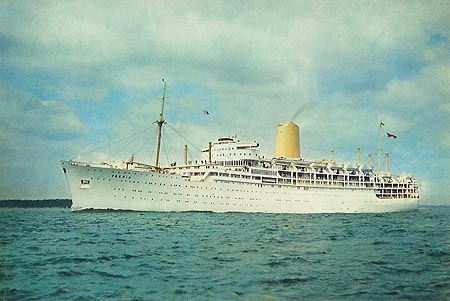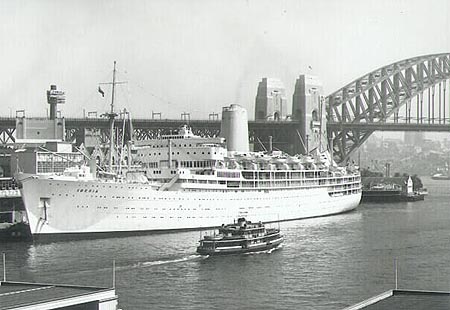
The P&O Iberia was a British ocean liner built by Harland and Wolff in Belfast, Northern Ireland, for the Peninsular and Oriental Steam Navigation Company. Completed in 1954, Iberia was one of four ships commissioned by P&O to replace vessels lost during World War II. She was launched on January 21, 1954, by Lady McGrigor, wife of First Sea Lord Rhoderick McGrigor, and began her maiden voyage on September 28, 1954, from London to Sydney via the Suez Canal.
Iberia measured 718.8 feet in length, 90.1 feet in beam, and had a gross tonnage of 29,614. She could carry approximately 1,414 passengers, with 679 in first class and 735 in second class. Her twin single-reduction geared steam turbines provided 42,500 horsepower, allowing her to reach a speed of 22 knots.
During her service life, Iberia experienced numerous mechanical issues and accidents. In 1956, she collided with the tanker SS Stanvec Pretoria, resulting in damage to both vessels. In 1962, her port stabilisers broke down, causing her to nearly roll over, and she grounded in the Suez Canal, damaging her port screw. Iberia also suffered electrical blackouts, including one in Auckland, New Zealand, and another in Funchal, Madeira Island, Portugal.
Despite these issues, Iberia operated on various routes, including the London-Sydney route via the Suez Canal and later the Pacific Ocean route to San Francisco and Vancouver. She was refitted in 1961 to enhance her passenger accommodations and services. However, her frequent breakdowns and mechanical problems led to her eventual retirement from service in 1972.
Iberia's final voyage was from Southampton to Sydney, after which she was sold for scrap. She was scrapped in Kaohsiung, Taiwan, in October 1973, alongside her sister ship Chusan. Throughout her 18-year career, Iberia demonstrated the challenges faced by ocean liners in the mid-20th century, as they struggled to adapt to the rise of air travel and maintain profitability.
MORE:


No comments:
Post a Comment